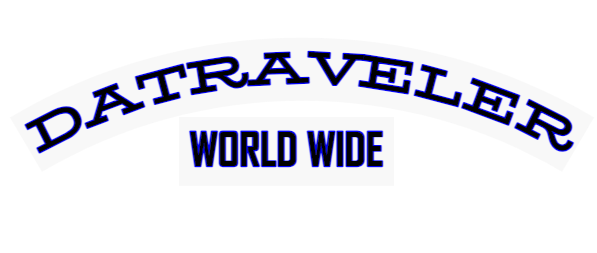United States History encompasses a complex web of events, people, and ideologies that have shaped the nation’s identity and trajectory. From the colonization of North America by European powers to the formation of a democratic republic, US history is characterized by themes of exploration, conflict, growth, and transformation.
Image by Art Bromage from Pixabay
Key chapters include the American Revolution, Civil War, Industrial Revolution, Progressive Era, World Wars I and II, Civil Rights Movement, and post-9/11 era.
These events have marked significant shifts in political structures, social dynamics, economic systems, and cultural norms within American society. By studying United States History with nuance and depth, professionals can gain insights into the complexities and contradictions inherent in the nation’s development over time.
United States History
Exploring these key chapters in American history allows individuals to understand the roots of current issues and challenges facing the nation today. By examining the past, we can learn from both the successes and failures of previous generations, informing our decisions and actions for the future. Through a comprehensive study of United States History, professionals can develop a more nuanced perspective on the complexities of our society and work towards creating a more just and equitable future for all.
Utah; Top Reasons to Visit Utah: From National Parks to City Life
United States history is a vast and intricate subject spanning centuries. Here are some key periods and events that outline the nation’s history:
Pre-Colonial and Colonial Period (Before 1607-1776)
- Indigenous Cultures: Before European contact, diverse Native American tribes thrived across North America.
- Exploration and Colonization: European explorers, including Christopher Columbus (1492), and subsequent expeditions by Spanish, French, Dutch, and English, began arriving in the New World.
- Jamestown: Established in 1607, it was the first permanent English settlement.
- Colonial Life: Development of the 13 British colonies along the East Coast. Various European powers contested for control.
Also Read: Luxurious and Convenient Stay at 42 Hotel near Barclays Center
Revolutionary Period (1765-1783)
- Causes of Revolution: British policies (e.g., Stamp Act, Townshend Acts) led to colonial discontent.
- Declaration of Independence: Adopted on July 4, 1776, marking the colonies’ formal separation from Britain.
- Revolutionary War: Major battles included Lexington and Concord, Saratoga, and Yorktown. The war ended with the Treaty of Paris in 1783.
Early Republic (1783-1815)
- Articles of Confederation: The first governing document, replaced by the U.S. Constitution in 1789.
- Constitution and Bill of Rights: Framework for the federal government and first ten amendments securing individual freedoms.
- War of 1812: Conflict with Britain solidified U.S. independence and fostered national pride.
Expansion and Reform (1815-1860)
- Manifest Destiny: Ideology driving westward expansion, leading to conflicts with Native Americans and Mexico.
- Texas Independence and Mexican-American War: Texas became a state in 1845; the war (1846-1848) resulted in the U.S. acquiring territories like California and New Mexico.
- Social Reforms: Abolition, women’s suffrage, and temperance movements gained momentum.
Civil War and Reconstruction (1861-1877)
- Civil War: Fought from 1861-1865, primarily over slavery and states’ rights. Key events included the Emancipation Proclamation and the Battle of Gettysburg.
- Reconstruction: The post-war era focused on integrating Southern states into the Union and establishing rights for freed slaves. It ended with the Compromise of 1877.
Industrialization and the Gilded Age (1877-1900)
- Economic Growth: Rapid industrialization, urbanization, and immigration.
- Labor Movement: Rise of labor unions and strikes in response to harsh working conditions.
- Social Issues: Mark Twain dubbed this era the “Gilded Age” due to its superficial glitter hiding social problems.
Progressive Era and World Wars (1900-1945)
- Progressive Reforms: Addressed issues like monopolies, corruption, and social justice.
- World War I: U.S. joined the Allies in 1917, contributing to the victory.
- Great Depression: The economic collapse in 1929 led to widespread hardship.
- New Deal: FDR’s programs aimed at economic recovery and social reforms.
- World War II: The U.S. entered after the attack on Pearl Harbor in 1941; a pivotal role in Allied victory.
History; Post-War Era and Cold War (1945-1991)
- Cold War: Tension between the U.S. and Soviet Union; included events like the Korean War, Cuban Missile Crisis, and Vietnam War.
- Civil Rights Movement: Struggles for African American equality, highlighted by figures like Martin Luther King Jr.
- Space Race: Competition with the Soviet Union, culminating in the moon landing in 1969.
History; Contemporary United States (1991-Present)
- End of Cold War: Collapse of the Soviet Union in 1991.
- Technological Advances: Growth of the internet and digital revolution.
- 21st Century Challenges: Terrorism (e.g., 9/11), economic crises (e.g., 2008 recession), and social movements (e.g., LGBTQ+ rights, Black Lives Matter).



Each period includes numerous significant events, movements, and figures that have shaped the nation. Let me know if you have a specific era or topic within U.S. history you’re interested in!


Leave a Reply